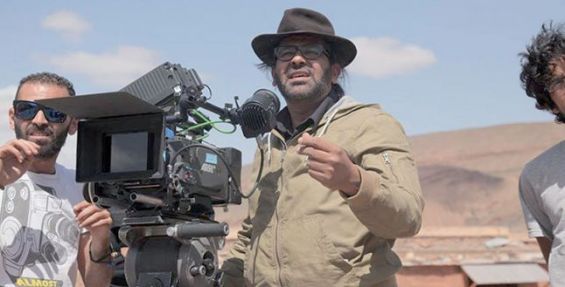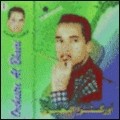Azalarabe Alaoui realized he had a passion for filmmaking in high school after he completed his first short film about rural immigration in Morocco. He began making films in 2003 after receiving his degree from the Institute of Cinema and TV in Canada. Throughout his career, Alaoui has directed both documentaries and pieces of fiction, his most recent being Kilikis, the Town of Owls. The film has received attention nationwide and abroad due to its representation of prisons that existed during the «Years of Lead» as well as other prevalent issues in Morocco.
Where did you find inspiration for the film?
The film is based on my childhood. But there are parts of the story that are fictional. For instance, the love story between Hassan and Wafa isn’t real; it’s fictional. In reality, there was an American woman, the wife of a guard at Tazmamart, who received a letter from her husband. She gave the message to an NGO who revealed the truth about the secret detention center. This is the real story. I made a love story to make it more dramatic.
Kilikis is also inspired by the previous documentary I directed, «In Their Prisons». I am always inspired by documentaries I’ve previously made. Documentary completes a fiction film. When I want to make a narrative film, I work on the documentary first. It provides me with the research.
Why is Kilikis referred to as the Town of Owls?
I didn’t want to call the film Tazmamart because I didn’t want it to be confused as a documentary film. Owls, in general, symbolize many things in many countries and in many cultures. In the occidental world, owls are a sign of wisdom. In the Arab world, they express everything that is negative; anger, sadness.
While writing the screenplay, did you meet with any former inmates from the Tazmamart prison?
No. I based the screenplay on memories from my childhood, the general information on the detention center and the books I read about the psychology between guards and detainees. I didn’t want to be influenced by the prisoner’s experience. Former detainees of Tazmamart wrote about what happened inside. I purposefully didn’t film the inside of the prison as to not make a statement on what happened inside. The movie is a reflection of what happened on the outside. I didn’t want the film to be biased.

You cite the Pablo Neruda quote, «They can cut the flowers, but they can never stop the crawling of the spring» in the film. What is the significance of this saying in relation to the film?
I wanted to say that they can stop rebellions, demonstrations, those who would try to reveal the truth, but they can never stop the crawling of the truth from somewhere else. The truth will always come out.
What was the most considerable difficulty you had while making the film?
The film reflects a phase of Moroccan history called the «Years of Lead» that violated human rights. I couldn’t get sponsors because people are scared to discuss this subject. The companies that help filmmakers didn’t want to help me because the matter is still dreadful in Morocco, and they didn’t want to associate or include themselves in the discourse. The film was made from the funding from the Cinematographic Center and my own money.
Why did you choose to premiere the film at the National Film Festival in Tangier?
It was not my choice. I think it was a mistake. The film could have gone to the Venice Film Festival. Still, the Moroccan Cinematographic Center insisted it premieres at the National Film Festival in Tangier, so Kilikis was no longer eligible to premiere at Venice.
Since its release, what has the reaction been like to the film within Morocco and abroad?
The previous detainees of Tazmamart didn’t like it and said that the film should have shed more light on the prisoners. So, at first, the film didn’t receive positive reactions in Morocco. But it got favorable reviews abroad, and once it did, people accepted it in Morocco.

Were you nervous about releasing the film in Morocco considering the subject of the film?
Of course, I was scared because I knew the film could be banned at any time. Also, I didn’t have enough money to complete the film. The sponsors didn’t want to support me or the movie when they read the screenplay because it’s a difficult topic to be tackled. Nobody could help me. I couldn’t even get people to donate water bottles for the cast and crew.
What is the most significant obstacle to filmmakers in Morocco?
In Morocco, there’s no real film production. It takes over four years to complete a film. You don’t have producers in Morocco who are willing to bring in money because they don’t expect a profit. For proper funding, you have to be able to find a co-producer abroad.
Do you think that art has power?
I think when you and your work are given importance outside of Morocco - then you can have it here. When international critics admit that you are right, that you are powerful, that your work is valuable, then people here respect you.





 chargement...
chargement...













